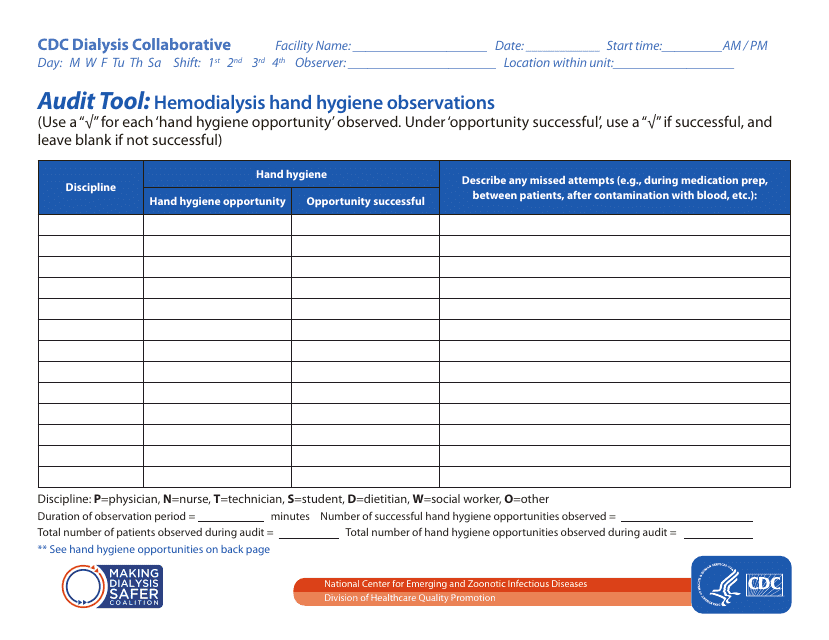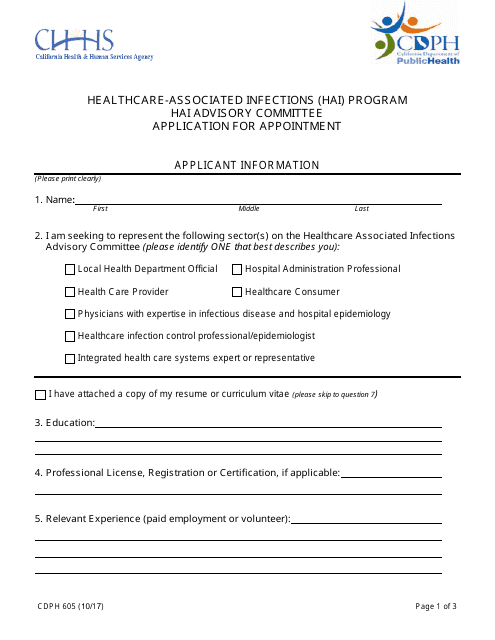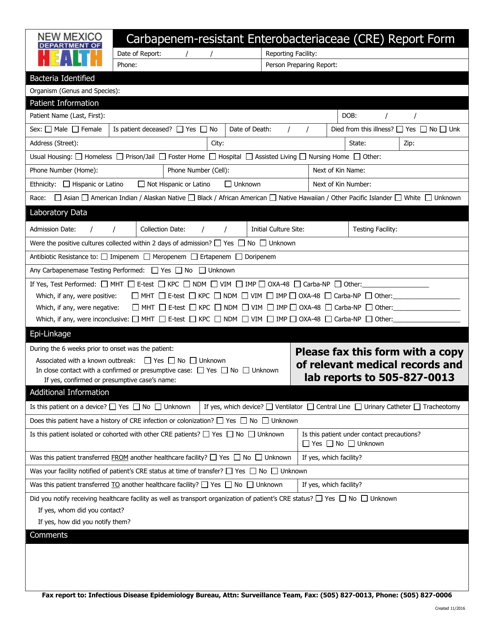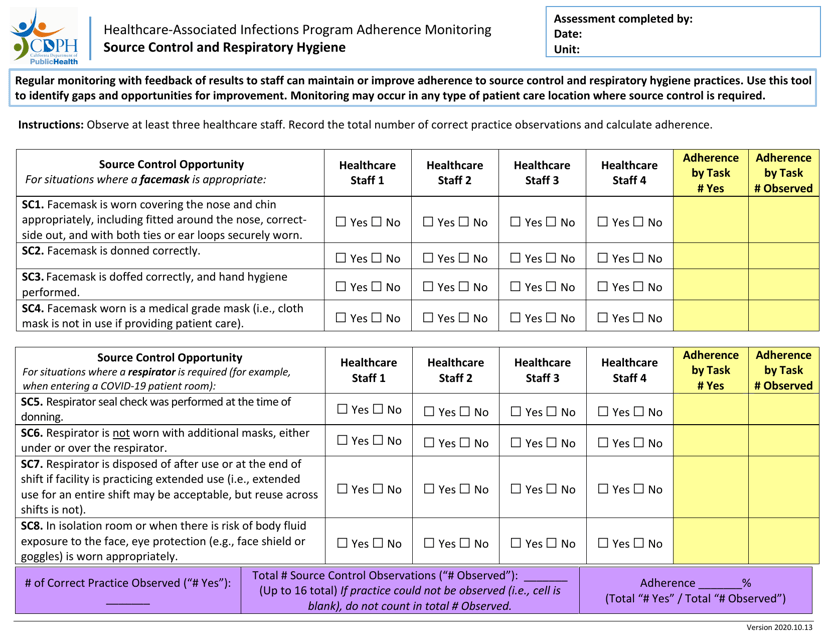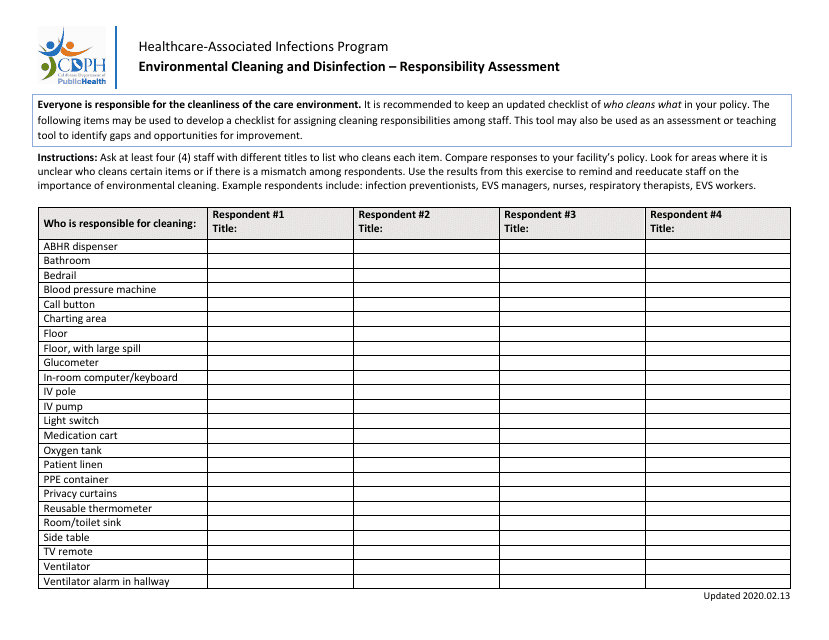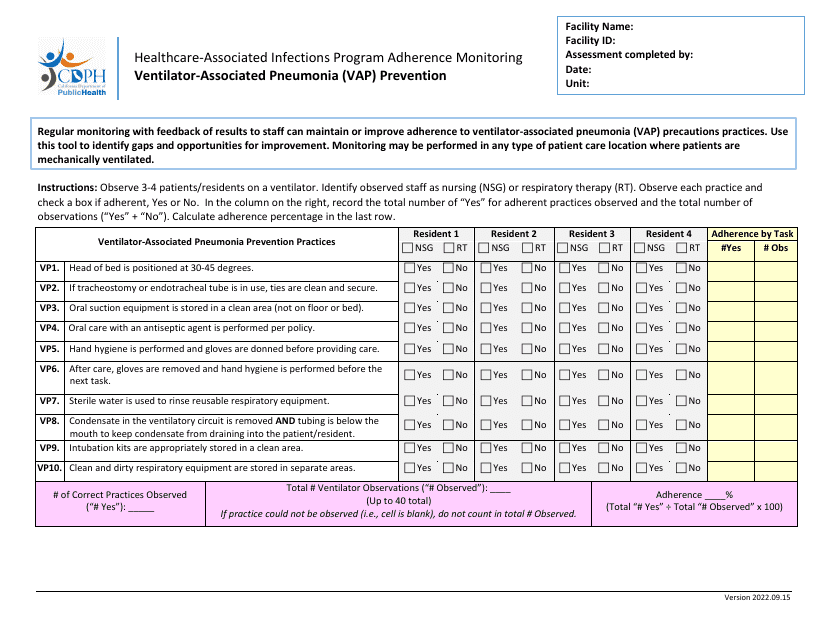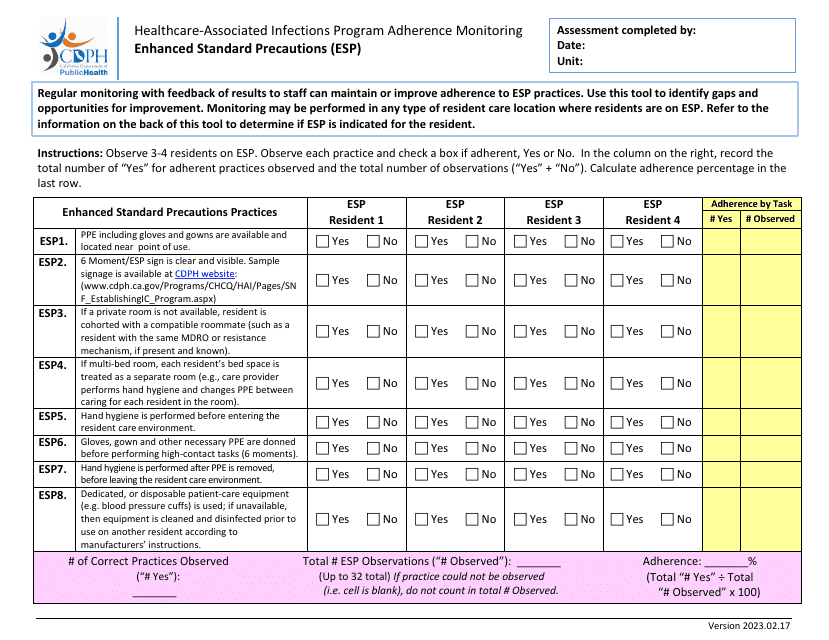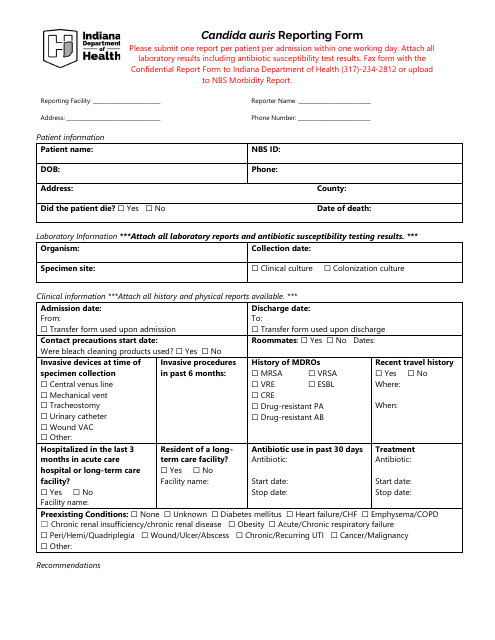Healthcare Associated Infections Templates
Healthcare Associated Infections, also known as HAI, are a major concern in the medical field. These infections are acquired by patients while receiving healthcare services in healthcare settings such as hospitals, clinics, and long-term care facilities. HAIs can be caused by a variety of microorganisms, including bacteria, viruses, and fungi.
The prevention and control of healthcare associated infections are of paramount importance to ensure patient safety and quality of care. Proper infection control measures, such as hand hygiene, environmental cleaning, and disinfection, and adherence to standard precautions, are crucial in reducing the risk of HAIs.
Our collection of documents on healthcare associated infections covers a wide range of topics related to prevention, surveillance, and response strategies. Whether you are a healthcare professional, policy maker, or researcher, our documents provide valuable insights into best practices and guidelines for managing and controlling HAIs.
From the Carbapenem-Resistant Enterobacteriaceae (CRE) Report Form in New Mexico to the Candida Auris Reporting Form in Indiana, our documents provide real-world examples and case studies that highlight the diverse nature and impact of HAIs. These documents serve as valuable resources for understanding the challenges posed by HAIs and developing effective strategies to combat them.
With our comprehensive collection of documents, healthcare professionals and policymakers can stay informed about the latest research and guidelines on healthcare associated infections. By implementing evidence-based practices and protocols, we can work together to reduce the prevalence of HAIs and improve patient outcomes.
Investing in the prevention and control of healthcare associated infections is not only crucial for individual patient care but also for public health. By providing access to our collection of documents, we aim to contribute to the global efforts in combating HAIs and making healthcare settings safer for all.
Documents:
8
This tool is used for conducting audits of hand hygiene practices in the context of hemodialysis procedures. It helps ensure that proper hand hygiene protocols are being followed to prevent the spread of infections.
This form is used for applying to be a member of the Healthcare Associated Infections (HAI) Advisory Committee in California.
This Form is used for reporting Carbapenem-Resistant Enterobacteriaceae (Cre) cases in New Mexico.
This document is for monitoring adherence to source control and respiratory hygiene in healthcare settings in California to prevent healthcare-associated infections.
This type of document is a responsibility assessment form for environmental cleaning and disinfection in healthcare facilities. It is specifically related to the Healthcare-Associated Infections Program in California.
This document provides guidelines and monitoring for preventing ventilator-associated pneumonia (VAP) in healthcare facilities in California. It aims to reduce healthcare-associated infections through adherence monitoring.
This document for monitoring the adherence to enhanced standard precautions in healthcare settings to reduce healthcare-associated infections in California.
This form is used for reporting cases of Candida Auris in the state of Indiana.

